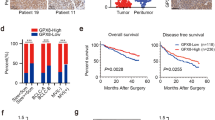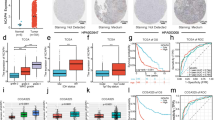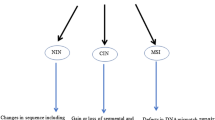Abstract
Chromosomal instability (CIN) refers to high rates of chromosomal gains and losses and is a major cause of genomic instability of cells. It is thought that CIN caused by loss of mitotic checkpoint contributes to carcinogenesis. In this study, we evaluated the competence of mitotic checkpoint in hepatoma cells and investigated the cause of mitotic checkpoint defects. We found that 6 (54.5%) of the 11 hepatoma cell lines were defective in mitotic checkpoint control as monitored by mitotic indices and flow-cytometric analysis after treatment with microtubule toxins. Interestingly, all 6 hepatoma cell lines with defective mitotic checkpoint showed significant underexpression of mitotic arrest deficient 2 (MAD2), a key mitotic checkpoint protein. The level of MAD2 underexpression was significantly associated with defective mitotic checkpoint response (p<0.001). In addition, no mutations were found in the coding sequences of MAD2 in all 11 hepatoma cell lines. Our findings suggest that MAD2 deficiency may cause a mitotic checkpoint defect in hepatoma cells.
Similar content being viewed by others
References
Beasley RP. Hepatitis B virus as the etiologic agent in hepatocellular carcinoma: Epidemiologic considerations. Hepatology 2:21S-26S;1982.
Bosch FX, Munoz N. Prospects for epidemiological studies on hepatocellular cancer as a model for assessing viral and chemical interactions. IARC Sci Publ 89:427–438;1988.
Cahill DP, Costa LT, Carson-Walter EB, Kinzler KW, Vogelstein B, Lengauer C. Characterization of MAD2B and other mitotic spindle checkpoint genes. Genomics 58:181–187;1999.
Chun ACS, Jin DY. Transcriptional regulation of mitotic checkpoint gene MAD1 by p53. J Biol Chem 278:37439–37450;2003.
Fang G, Yu H, Kirschner MW. The checkpoint protein MAD2 and the mitotic regulator CDC20 form a ternary complex with the anaphase-promoting complex to control anaphase initiation. Genes Dev 12:1871–1883;1998.
Fraschini R, Beretta A, Sironi L, Musacchio A, Lucchini G, Piatti S. Bub3 interaction with Mad2, Mad3 and Cdc20 is mediated by WD40 repeats and does not require intact kinetochores. EMBO J 20:6648–6659;2001.
Gemma A, Hosoya Y, Seike M, Uematsu K, Kurimoto F, Hibino S, Yoshimura A, Shibuya M, Kudoh S, Emi M. Genomic structure of the human MAD2 gene and mutation analysis in human lung and breast cancers. Lung Cancer 32:289–295;2001.
Hardwick KG, Johnston RC, Smith DL, Murray AW. MAD3 encodes a novel component of the spindle checkpoint which interacts with Bub3p, Cdc20p, and Mad2p. J Cell Biol 148:871–882;2000.
Hoyt MA, Totis L, Roberts BT.Saccharomyces cerevisiae genes required for cell cycle arrest in response to loss of microtubule function. Cell 66:507–517;1991.
Iwanaga Y, Kasai T, Kibler K, Jeang KT. Characterization of regions in hsMAD1 needed for binding hsMAD2: A polymorphic change in an hsMAD1 leucine zipper affects MAD1-MAD2 interaction and spindle checkpoint function. J Biol Chem 277:31005–31013;2002.
Iwanaga Y, Jeang KT. Expression of mitotic spindle checkpoint protein hsMAD1 correlates with cellular proliferation and is activated by a gain-of-function p53 mutant. Cancer Res 62:2618–2624;2002.
Jin DY, Spencer F, Jeang KT. Human T cell leukemia virus type 1 oncoprotein Tax targets the human mitotic checkpoint protein MAD1. Cell 93:81–91;1998
Kasai T, Iwanaga Y, Iha H, Jeang KT. Prevalent loss of mitotic spindle checkpoint in adult T-cell leukemia confers resistance to microtubule inhibitors. J Biol Chem 277:5187–5193;2002.
Kew MC, Popper H. Relationship between hepatocellular carcinoma and cirrhosis. Semin Liver Dis 4:136–146;1984.
Kew MC. Synergistic interaction between aflatoxin B1 and hepatitis B virus in hepatocarcinogenesis. Liver Int 23:405–409;2003.
Li R, Murray AW. Feedback control of mitosis in budding yeast. Cell 66:519–531;1991.
Li Y, Benezra R. Identification of a human mitotic checkpoint gene: hsMAD2. Science 274:246–248;1996.
Michel L, Diaz-Rodriguez E, Narayan G, Hernando E, Murty VV, Benezra R. Complete loss of the tumor suppressor MAD2 causes premature cyclin B degradation and mitotic failure in human somatic cells. Proc Natl Acad Sci USA 101:4459–4464;2004.
Michel LS, Liberal V, Chatterjee A, Kirchwegger R, Pasche B, Gerald W, Dobles M, Sorger PK, Murty VV, Benezra R. MAD2 haplo-insufficiency causes premature anaphase and chromosome instability in mammalian cells. Nature 409:355–359;2001.
Mitelman F, Johansson B, Mertens F. Catalog of Chromosome Aberrations in Cancer. New York, Wiley-Less, 1994, vol 2.
Ng IO, Lai EC, Ho JC, Cheung LK, Ng MM, So MK. Flow cytometric analysis of DNA ploidy in hepatocellular carcinoma. Am J Clin Pathol 102:80–86;1994.
Percy MJ, Myrie KA, Neeley CK, Azim JN, Ethier SP, Petty EM. Expression and mutational analyses of the human MAD2L1 gene in breast cancer cells. Genes Chromosomes Cancer 29:356–362;2000.
Saeki A, Tamura S, Ito N, Kiso S, Matsuda Y, Yabuuchi I, Kawata S, Matsuzawa Y. Frequent impairment of the spindle assembly checkpoint in hepatocellular carcinoma. Cancer 94:2047–2054;2002.
Saito I, Miyamura T, Ohbayashi A, Harada H, Katayama T, Kikuchi S, Watanabe Y, Koi S, Onji M, Ohta Y. Hepatitis C virus infection is associated with the development of hepatocellular carcinoma. Proc Natl Acad Sci USA 87:6547–6549;1990.
Sudo T, Nitta M, Saya H, Ueno NT. Dependence of paclitaxel sensitivity on a functional spindle assembly checkpoint. Cancer Res 64:2502–2508;2004.
Visintin R, Prinz S, Amon A. CDC20 and CDH1: A family of substrate-specific activators of APC-dependent proteolysis. Science 278:460–463;1997
Wang X, Jin DY, Wong YC, Cheung AL, Chun AC, Lo AK, Liu Y, Tsao SW. Correlation of defective mitotic checkpoint with aberrantly reduced expression of MAD2 protein in nasopharyngeal carcinoma cells. Carcinogenesis 21:2293–2297;2000.
Wang X, Jin DY, Ng RW, Feng H, Wong YC, Cheung AL, Tsao SW. Significance of MAD2 expression to mitotic checkpoint control in ovarian cancer cells. Cancer Res 62:1662–1668;2002.
Wang X, Jin DY, Wong HL, Feng H, Wong YC, Tsao SW. MAD2-induced sensitization to vincristine is associated with mitotic arrest and Raf/Bcl-2 phosphorylation in nasopharyngeal carcinoma cells. Oncogene 22:109–116;2003.
Weiss E, Winey M. TheSaccharomyces cerevisiae spindle pole body duplication gene MPS1 is part of a mitotic checkpoint. J Cell Biol 132:111–123;1996.
Wilkens L, Flemming P, Gebel M, Bleck J, Terkamp C, Wingen L, Kreipe H, Schlegelberger B. Induction of aneuploidy by increasing chromosomal instability during dedifferentiation of hepatocellular carcinoma. Proc Natl Acad Sci USA 101:1309–1314;2004.
Zhou Y, Ching YP, Ng RWM, Jin DY. Differential expression, localization and activity of two alternatively spliced isoforms of human APC regulator CDH1. Biochem J 374:349–358;2003.
Author information
Authors and Affiliations
Rights and permissions
About this article
Cite this article
Sze, K.MF., Ching, YP., Jin, DY. et al. Association of MAD2 expression with mitotic checkpoint competence in hepatoma cells. J Biomed Sci 11, 920–927 (2004). https://doi.org/10.1007/BF02254377
Received:
Accepted:
Issue Date:
DOI: https://doi.org/10.1007/BF02254377




